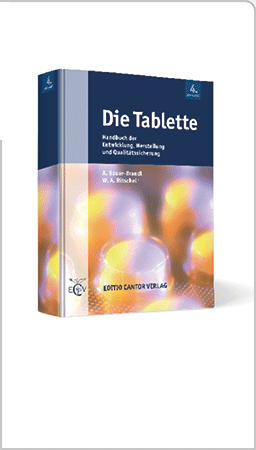Biodegradation of High-Tech Drug Delivery Systems Investigations into injection moulded polymer capsules and biodegradable magnets Rüdiger Gröning, Erasmus Kuhlmann, Rotraut Stephanie Müller Institut für Pharmazeutische Technologie und Biopharmazie, Westfälische Wilhelms-Universität, Münster (Germany) Corresponding author: Prof. Dr. Rüdiger Gröning, Institut für Pharmazeutische Technologie und Biopharmazie, Westfälische Wilhelms-Universität, Corrensstr. 1, 48149 Münster (Germany), Fax +49 (0)251 833 93 08, e-mail: groenin@uni-muenster.de Electronic circuits, sensor elements and transit controlling devices will be part of new and innovative peroral drug delivery systems in the future. Drug delivery systems can be prepared by injection moulding of thermoplastic polymers.
In the present studies the biodegradation of different components of externally controlled drug delivery systems with internal magnets was investigated. The internal magnets are incorporated in capsule- like polymer shells.
Capsules were manufactured by injection moulding with a laboratory scale injection moulding machine. The capsules were formed from three different commercially available polymers, which are distributed by the manufacturers as “biodegradable” polymers: copolyesteramide, polycaprolactone and a starch/polycaprolactone mixture. The biodegradation of the polymer capsules in sewage and compost was studied. The results show that after a 12 resp. 24 week treatment the capsules made from a mixture of polycaprolactone and starch were nearly totally decomposed in sewage and compost. The other capsules were only partly decomposed.
For the development of peroral drug delivery systems controlled by external magnets it may be advantageous to develop magnets, which disintegrate after defecation. In the present investigations degradable magnets were formed from powdered iron, magnetite or maghemite by means of a single punch tablet press. The degradation of the magnets after contact with aqueous fluids within 6 h was demonstrated. Key words Biodegradable magnets • Biodegradation • Controlled release • Drug targeting • Injection moulded polymer capsules | 



